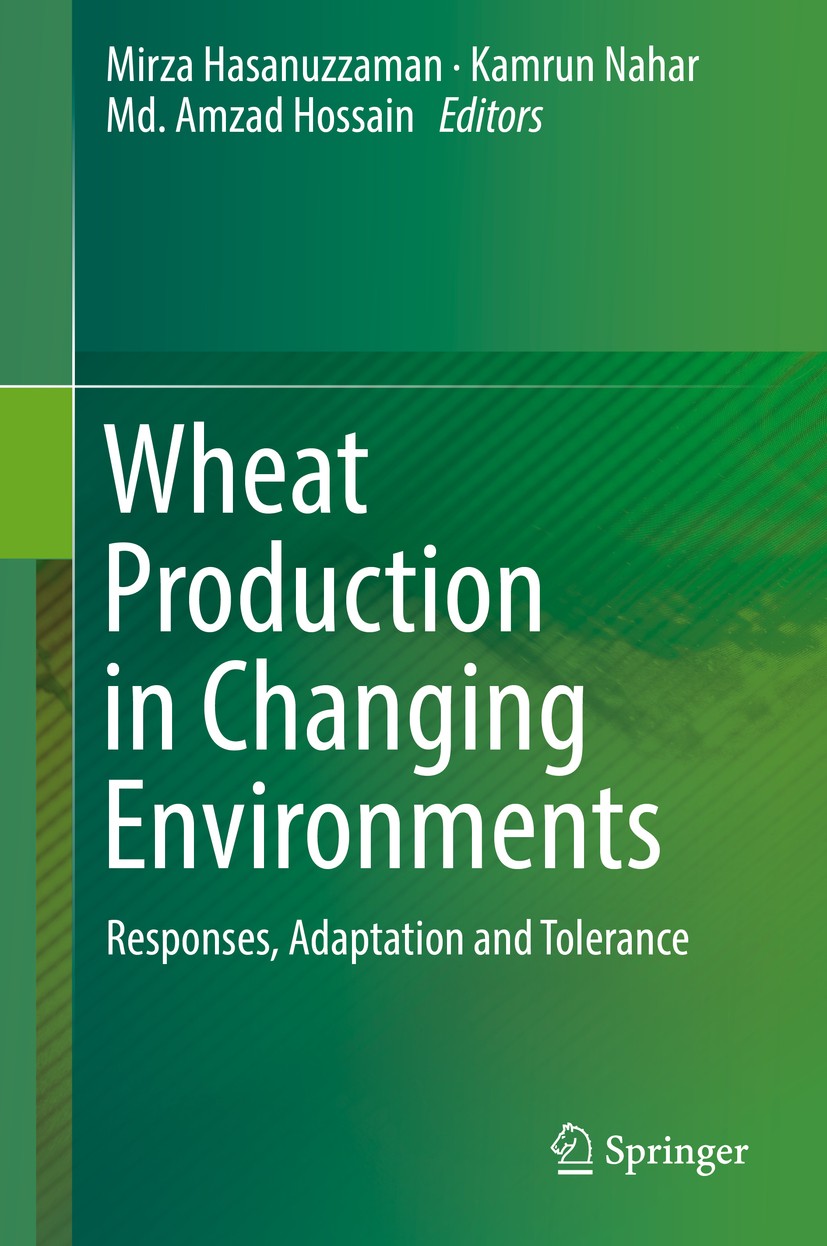| 書目名稱 | Wheat Production in Changing Environments | | 副標(biāo)題 | Responses, Adaptatio | | 編輯 | Mirza Hasanuzzaman,Kamrun Nahar,Md. Amzad Hossain | | 視頻video | http://file.papertrans.cn/1028/1027854/1027854.mp4 | | 概述 | Presents a comprehensive overview of both wheat responses to environmental stresses and its tolerance mechanisms.Includes 24 chapters with 61 figures (42 in color) and 45 tables contributed by 85 auth | | 圖書封面 |  | | 描述 | .This book?presents recent advances?in?global?wheat crop research,?including the?effects of abiotic stresses like high?and low?temperatures, drought, hypoxia, salinity, heavy metals, nutrient deficiency, and toxicity?on?wheat production. It also highlights various?approaches to alleviate the damaging effects of abiotic stress on wheat?as well as?advanced approaches to develop abiotic-stress-tolerant wheat crops.?.Wheat is probably one of the world’s?most important cereals;?it is a staple food in more than 40 countries,?and because of its?adaptability is cultivated in almost every region. Global wheat production?has?more than doubled?in the last 50 years due to higher yields.?However, despite?their high yield potential, modern wheat cultivars are often?subject to crop?loss due to the abiotic stresses.?As such, plant breeders have long aimed to improvetolerance in order to maintain yield.?.Written by 85 experts, and offering the latest insights into wheat responses and tolerance to various abiotic stresses,?it is a valuable?tool for agronomists, plant breeders, plant physiologists and students in the field of?plant?science and?agriculture. It?is the first book to comprehensively?cove | | 出版日期 | Book 2019 | | 關(guān)鍵詞 | Abiotic stress; Plant physiology; Food crops; Wheat plants; Stress tolerance development; climate change | | 版次 | 1 | | doi | https://doi.org/10.1007/978-981-13-6883-7 | | isbn_softcover | 978-981-13-6885-1 | | isbn_ebook | 978-981-13-6883-7 | | copyright | Springer Nature Singapore Pte Ltd. 2019 |
The information of publication is updating

|
|
 |Archiver|手機(jī)版|小黑屋|
派博傳思國際
( 京公網(wǎng)安備110108008328)
GMT+8, 2025-10-10 02:49
|Archiver|手機(jī)版|小黑屋|
派博傳思國際
( 京公網(wǎng)安備110108008328)
GMT+8, 2025-10-10 02:49


